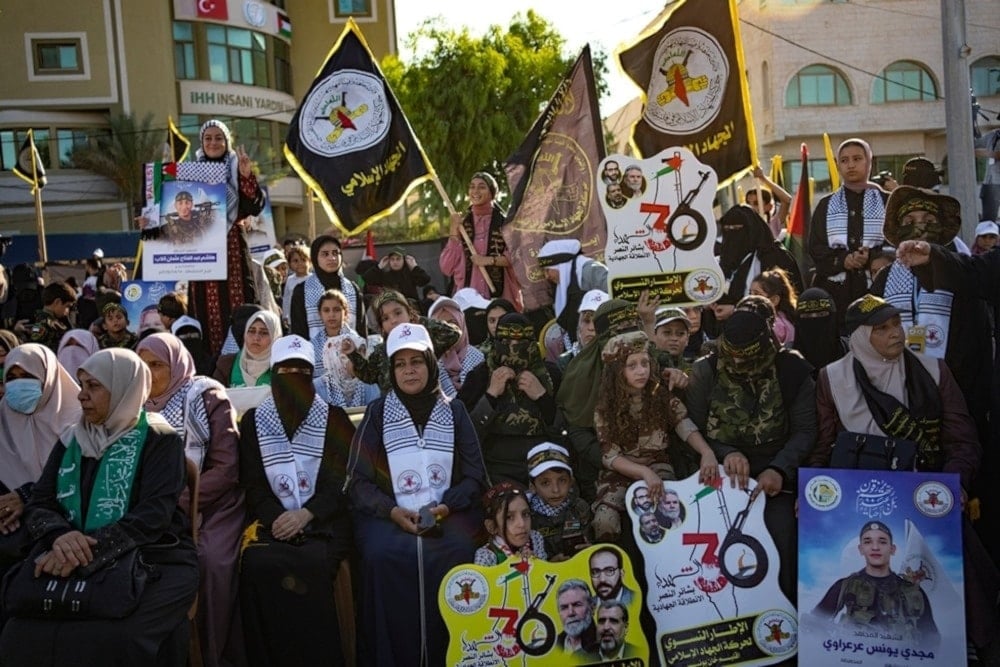PIJ commemorates founder on 30th anniversary of assassination
Marking 30 years since Fathi Shaqaqi’s assassination, PIJ honors its founder’s legacy, pledging unity, resistance, and defiance amid "Israel’s" ongoing assault on Gaza.
-

Palestinian Islamic Jihad (PIJ) supporters attend a rally marking the 36th anniversary of the movement's foundation in Gaza City on Friday, October 6, 2023. (AP)
The Palestinian Islamic Jihad movement (PIJ) reaffirmed on Sunday its commitment to armed struggle until “all of Palestine” is liberated, marking the 30th anniversary of the assassination of its founder and first Secretary-General, Fathi Shaqaqi.
In a statement, the movement praised Shaqaqi’s ideological legacy and urged that Palestine remain the “central cause for Arab and Muslim peoples.” It emphasized that “Jihad and Resistance are the means to confront the Zionist–Western colonial project,” calling for “national and Islamic unity, faith, awareness, and revolution” as essential conditions for achieving victory.
The movement commended its military wing, Saraya al-Quds, for its role in confronting Israeli occupation forces, highlighting its “heroic operations” during ongoing confrontations in Gaza over the past two years. It also noted the continued activity of its West Bank units in confrontations aimed at defending Palestinian towns and holy sites from occupation raids.
PIJ further pledged to continue efforts to “end the assault on Gaza, secure the entry of aid, push for the withdrawal of the Israeli occupation, support reconstruction, and strengthen internal unity.” The statement stressed that “the martyrdom of Fathi Shaqaqi only deepened our faith in the path of Jihad and resistance.”
Wider context
Shaqaqi was assassinated by the Israeli Mossad on October 26, 1995, in Malta, when he was shot five times by a team comprising two men in the town of Sliema.
Born in 1951 in the al-Shati refugee camp in Gaza to a family displaced from the occupied town of Zarnouqa, Shaqaqi studied mathematics at Birzeit University and later medicine at Egypt's Zagazig University. In 1981, he began working as a teacher and then a general physician in several hospitals in occupied al-Quds.

 2 Min Read
2 Min Read









